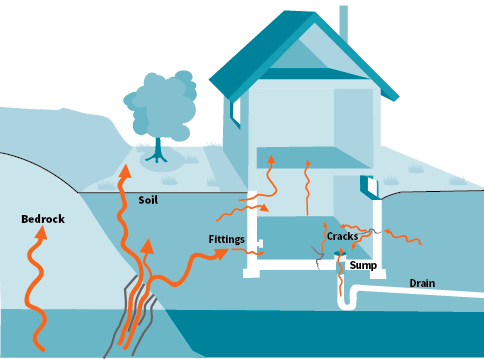
The Six Nations Environment Task Force is preparing to conduct radon testing across the community to develop mitigation strategies for new and existing dwellings.
The pilot study has been in the works since last year.
Rod Whitlow and Coun. Michelle Bomberry sought ethics approval from elected council last week to conduct interviews during the radon sampling study to help determine the effects of radon exposure in homes across the reserve.
100 homes in random locations across the territory will be monitored to measure radon levels entering the home.
“Exposure to radon gas is the number two cause of lung cancer so the questions will be geared to…determine if anyone in the household had ever been diagnosed with lung cancer,” said Whitlow.
The study will determine what housing mitigations might be needed and what happens with exposure to radon gas over a long period of time.
“We’ve heard many health concerns from our community members, many environmental concerns, one being radon,” said Bomberry, the principal investigator. “We actually did some radon testing at businesses back in (2015/2016). From there, we did detect there was one business that had higher levels than normal. A mitigation plan was put in place and that was remedied.”
Radon gas is a naturally occurring by-product from uranium breakdown in soils. It’s also found in gypsum rock.
“The testing is time and labour intensive,” said Whitlow. “We don’t have any scientific information at this point that there’s a part of the community or reserve that might have higher levels of radon.”
Technicians will set up a measuring device in the household at the lowest level of the dwelling, which doesn’t have to be a basement, to measure the levels of radon gas entering the home.
“It’s going to be a voluntary invitation and make sure that it’s spread across the community and not just one geographic location.”






